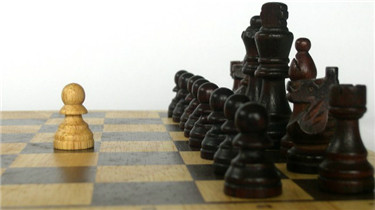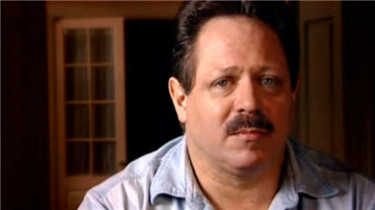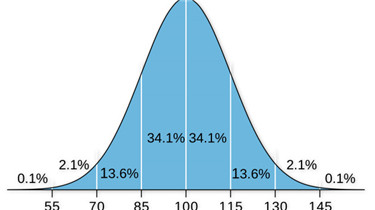For decades, sociologists have been trying to understand why certain people rise to the top of their fields. A number of theories have emerged, so if you're struggling on the path of success, perhaps these will give you some new insight.
幾十年以來(lái),社會(huì)學(xué)家一直在嘗試著弄明白,為什么有些人可以成為他們所在領(lǐng)域的佼佼者,一系列的理論學(xué)說(shuō)也由此產(chǎn)生。因此,如果你正在通往成功的道路上掙扎,那么以下所述也許可以刷新你對(duì)“成功”的看法。
10. Being an Underdog Can be Advantageous
10. 弱者也能占上風(fēng)

You're probably familiar with Malcolm Gladwell, who writes and researches on the topic of success. In his book David and Goliath, he examines the concept of the underdog and argues that they actually have a greater advantage than the so-called “Goliaths.” When the Goliaths win, it's often because the underdog is playing by Goliath's rules. However, if “David” looks at the situation from a completely different angle and approaches it with their own unique take, then the underdog has a better chance at winning. According to Gladwell, the underdog can substitute effort for ability under the right conditions.
大家應(yīng)該很熟悉馬爾科姆·格拉德威尓(Malcolm Gladwell),他致力于研究成功學(xué),并以此為主題寫作。在其《大衛(wèi)與歌利亞》(David and Goliath)一書中,他重新審視了弱者理論,并且提出了爭(zhēng)鋒相對(duì)的反駁意見(jiàn)。他認(rèn)為,弱者實(shí)際上要比那些所謂的“歌利亞”(譯注:“大衛(wèi)”和“歌利亞”分別指代的是弱者和強(qiáng)者)更有優(yōu)勢(shì)。強(qiáng)者之所以取得勝利,通常是因?yàn)槿跽弑凰麄兊囊?guī)則玩弄了。如果“大衛(wèi)”們從一個(gè)全新的角度來(lái)看待現(xiàn)實(shí)情況,并用自己獨(dú)特的方式扭轉(zhuǎn)劣勢(shì),那么接下來(lái),他們就會(huì)有更大的把握獲得成功。正如格拉德威尓所言,在適當(dāng)?shù)那榫诚拢跽呖梢杂门?lái)彌補(bǔ)自身能力的不足。
Using the titular biblical example, Goliath was expecting hand-to-hand combat. David approached it differently and used a sling to fire a stone at Goliath's head. David essentially brought a gun to a fistfight. This wasn't against the rules, and David won because he didn't go along with Goliath's expectations. For an additional example, see that famous sword “fight” scene in Indiana Jones.
以一個(gè)圣經(jīng)故事——歌利亞和大衛(wèi)的戰(zhàn)爭(zhēng)——為例。歌利亞原本以為此戰(zhàn)會(huì)是一場(chǎng)肉搏戰(zhàn)(譯注:此處指歌利亞所代表的非利士人同大衛(wèi)所代表的以色列人的戰(zhàn)爭(zhēng))。而大衛(wèi)的做法卻完全出乎了歌利亞的意料——他用投石彈弓打中了歌利亞的頭。其實(shí)大衛(wèi)本來(lái)也是帶著一把槍準(zhǔn)備搏斗的,但大衛(wèi)投石的做法并不違規(guī),也正是因?yàn)椴话闯@沓雠疲炮A得了勝利。還有一個(gè)例子就是《奪寶奇兵》中那場(chǎng)著名的劍戰(zhàn)。
History is full of underdogs beating the favored opponent simply because they were innovative. The Spartans held off the Persians at the Battle of Thermopylae, and T. E. Lawrence led the Bedouins across the desert to fight the Turks. Innovation and thinking outside the box can be more advantageous than being skillful. So if the odds are against you, perhaps you just need to stop playing by everyone else's rules and embrace your strengths.
歷史上弱者出奇制勝打敗強(qiáng)者的例子隨處可見(jiàn)。斯巴達(dá)人在溫泉關(guān)戰(zhàn)役(the Battle of Thermopylae)中戰(zhàn)勝了波斯人以及托馬斯·愛(ài)德華·勞倫斯(T.E.Lawrence,譯注:英國(guó)軍官,因在1916年至1918年的阿拉伯起義中作為英國(guó)聯(lián)絡(luò)官的角色而出名,被阿拉伯人看作民間英雄)帶領(lǐng)貝多因人(Bedouins,譯注:一個(gè)居無(wú)定所的阿拉伯游牧民族)翻越沙漠抗擊土耳其人……別出心裁的想法往往比出眾的能力更具優(yōu)勢(shì)。所以如果遇到勁敵,你所要做的大概就是跳出常規(guī)的牢籠并使出殺手锏來(lái)打敗對(duì)方。
9. Society Has Built-in Obstacles
9.社會(huì)總是存障礙

There are certain obstacles in our lives that are hard to overcome. It can be as simple as when and where you're born — in Malcolm Gladwell's popular book, Outliers, he gives the example of hockey players that are drafted to the NHL.
在我們的生活中,有很多難以克服的障礙,即使是生于何時(shí)何地這樣簡(jiǎn)單的問(wèn)題都有可能成為一個(gè)人發(fā)展的攔路石——對(duì)此,馬爾科姆·格拉德威尓(Malcolm Gladwell,譯注:《紐約客》特約撰稿人)在他的著作《異類》(Outliers)中,給出了北美國(guó)家冰上曲棍球聯(lián)盟(NHL, National Hockey League)征招曲棍球員的例子。
As children, all hockey players who are born in the same year play in the same division. However, if you compare an eight year old who was born on January 1 to a player who was born December 31, there are drastic differences. The player born in January has had almost a whole extra year to grow and develop, meaning they could be faster, stronger and simply better than a player born in December. Then when it comes time to pick players for more competitive teams, the older and more developed children will have an advantage. They're more likely to be chosen to go on for more training and play against other elite players. That cycle will continue, and the players born in December will always be playing catch up. Between 1980 and 2007, 36% of players drafted into the NHL were born in the first quarter of the year, while only 14.5% of the players that were drafted were born in the last quarter of the year.
所有同年出生的曲棍球運(yùn)動(dòng)員在孩提時(shí)期就開始為同一支隊(duì)伍效力。但是,如果把兩個(gè)同為八歲,但分別出生在1月1日和12月31日的隊(duì)員進(jìn)行比較的話,你就會(huì)發(fā)現(xiàn)巨大的不同。1月出生的隊(duì)員幾乎多出一年的時(shí)間來(lái)成長(zhǎng)和發(fā)展,這也就意味著他們動(dòng)作會(huì)更敏捷,身體會(huì)更強(qiáng)壯,因而輕而易舉就能把12月出生的隊(duì)員給比下去。到了為更具競(jìng)爭(zhēng)力的隊(duì)伍挑選隊(duì)員時(shí),發(fā)展得更好的年長(zhǎng)隊(duì)員就占據(jù)了優(yōu)勢(shì)。他們似乎更容易被選出來(lái)接受更多的訓(xùn)練,并和其他精英球員對(duì)賽。這種循環(huán)會(huì)持續(xù)下去,12月出生的球員會(huì)被不斷趕超。從1980到2007年間,36%被招進(jìn)NHL球員都是在第一季度出生的,而出生在最后一個(gè)季度的入選球員僅僅只占到14.5%的比例。
This shows that there are always going to be challenges in life, but it also presents an interesting idea. What would happen if youth hockey had one league for children born in the first six months and one for children born in the last six months? This would possibly change the playing field and double the amount of great players.
這表明,生活中的挑戰(zhàn)無(wú)處不在,卻又能同時(shí)引發(fā)我們的思考。試想,如果有兩支曲棍球青年隊(duì),其中一支只有上半年出生的球員,而另一支的球員都出生在下半年,那情況又會(huì)如何?這可能就會(huì)使整個(gè)曲棍球領(lǐng)域發(fā)生翻天覆地的改變,優(yōu)秀的球員數(shù)量倍增。
Hockey is far from the only field that uses rigid timetables. School, which often builds the foundation for success, is also structured so children born earlier in the year have more time to learn and mature than those born later in the year. What would happen if schools had enrollment times every six months instead of once a year?
曲棍球領(lǐng)域絕不是一個(gè)規(guī)則死板的領(lǐng)域。而學(xué)校作為為人們的成功奠定基礎(chǔ)的地方,如今這種一年招生一次的規(guī)定,使得那些一年中出生較早的孩子比出生較晚的孩子有更多的時(shí)間去學(xué)習(xí),也更加的成熟。如果學(xué)校可以每半年招生一次而不是一年一次,那么事情又會(huì)變得怎樣呢?
8. No One Succeeds on Their Own
8.成功也需得援助

While it would be nice to succeed simply because we work hard, life doesn't work that way. We need help and support from friends, family and teachers, and then we need chances from employers and other key figures in the fields we choose to pursue. To illustrate this point, in Outliers Gladwell talks about two men with genius level intellect — Christopher Langan and Robert Oppenheimer. Many readers may know Oppenheimer as the “father of the atomic bomb,” but Langan is much more obscure.
如果只要努力就能獲得成功,那再好不過(guò)了,但生活并非如此。我們需要朋友、家人和老師的幫助與支持,需要所處行業(yè)雇主或其他高層給的機(jī)會(huì)。為闡釋這一點(diǎn),在《異類》(Outliers)一書中,馬爾科姆·格拉德威爾(Gladwell)談到兩個(gè)天才級(jí)別的人—克里斯托弗·蘭根(Christopher Langan)和羅伯特·奧本海默( Robert Oppenheimer)。很多讀者可能知道奧本海默是“原子彈之父”,但蘭根卻遠(yuǎn)沒(méi)那么出名。
Langan was born in 1952 and has an IQ between 195 and 210, which is higher than both Einstein and Stephen Hawking. However, Langan isn't teaching theoretical physics at Harvard — he's a rancher in Missouri. While there's nothing wrong with being a rancher, it's an odd profession for one of the smartest living people.
蘭根生于1952年,智商介于195到210之間,已經(jīng)高過(guò)愛(ài)因斯坦和史蒂芬·霍金了。然而,蘭根最終也沒(méi)能在哈佛教授理論物理—他只是密蘇里的一名農(nóng)場(chǎng)工人。做一名農(nóng)場(chǎng)工人本身沒(méi)錯(cuò),但作為世界上最聰明的人之一,蘭根從事這個(gè)職業(yè)就太過(guò)古怪了。
Gladwell points out that the men grew up in two different environments. Langan was born into a poor rural family and attended public schools that didn't recognize his brilliance. After high school he attended Reed College, but had to drop out in the second semester because his mother had failed to fill out scholarship forms. A year and a half later, after working in construction and as a forest firefighter, he enrolled at Montana State University. However, he was having problems getting to school because his car broke down. He asked the school if he could change from two morning classes to afternoon classes because he could get a ride later in the day, but the university refused. Langan became increasingly frustrated and eventually dropped out.
格拉德威爾指出這兩個(gè)人在完全不同的環(huán)境中長(zhǎng)大。蘭根出生于貧窮的農(nóng)民家庭,就讀于公立學(xué)校——這些學(xué)校完全無(wú)法發(fā)掘出他的聰明才智。高中畢業(yè)后,他進(jìn)入里德學(xué)院(Reed College)學(xué)習(xí), 但第二學(xué)期就被迫輟學(xué),因?yàn)樗麐寢屩巴藥退顚懩锚?jiǎng)學(xué)金所必需的財(cái)力證明表!這使他錯(cuò)失了獎(jiǎng)學(xué)金,導(dǎo)致學(xué)費(fèi)無(wú)以為繼。蘭根通過(guò)在工地打工、當(dāng)森林消防員積攢學(xué)費(fèi),終于在一年半后進(jìn)入了蒙大拿州立大學(xué)。可是他的車壞了,去上學(xué)不方便(譯注:當(dāng)時(shí)是寒冬,蘭根住的地方離學(xué)校有二十多公里的路程)。他便和學(xué)校商量,看是否可以將上午兩門課換到下午——因?yàn)橄挛缈梢源铐橈L(fēng)車,但學(xué)校不同意。因此蘭根越來(lái)越沮喪,最終輟學(xué)了。
Oppenheimer, on the other hand, was raised in an environment where his gifts were cultured, he was encouraged from a young age, and was given the best education possible. While at Cambridge, he tried to poison a professor he was envious of. He was caught but only put on probation, and was allowed to continue studying.
與之相反,奧本海默在優(yōu)渥的環(huán)境中長(zhǎng)大,他的天賦得到了很好的發(fā)展。他自小受鼓勵(lì),接受最好的教育。在劍橋時(shí),奧本海默曾因試圖毒殺一名他嫉妒的教授而被捕,但只被處以緩刑,仍可繼續(xù)學(xué)習(xí)。
It's amazing that both brilliant men went down such different paths based on the help they received. Langan was frustrated by a lack of support, while Oppenheimer committed a serious crime and got away with a slap on the wrist. The lesson is that in order to succeed, the gifts and interests of a person need to be encouraged, especially at a young age. Then as they grow up, people need to be given opportunities, breaks and second chances. Without help from other people, it makes it impossible to succeed because as Gladwell points out, “… no one—not rock stars, not professional athletes, not software billionaires, and not even geniuses — ever makes it alone.”
兩個(gè)同樣聰慧的人走上截然不同的路,只因他們所受到的幫助不同,這不能不讓人吃驚! 蘭根因缺乏支持而備感沮喪,而奧本海默犯了重罪卻被從輕處罰。結(jié)論就是:一個(gè)人要獲得成功,天賦和興趣的培養(yǎng)需要他人的鼓勵(lì),越是年幼,這種支持就越是重要。長(zhǎng)大后,人們需要的是機(jī)遇,是諒解,是重頭再來(lái)的機(jī)會(huì)。如果沒(méi)有他人的幫助,取得成功是不可能的,就像格拉德威爾所說(shuō)得,“沒(méi)有人——沒(méi)有搖滾明星,專業(yè)球員或軟件億萬(wàn)富翁,甚至沒(méi)有一個(gè)天才是單靠自己成功的。”
7. IQ is Overrated
7.智商也會(huì)被高估

In the business world, it always seems like the smartest guys are the most successful. After all, firms hire the best and brightest from schools. However, while people with high test scores do have more opportunities, that doesn't necessarily mean that smart people are more successful. In fact, in many fields the link between success and intelligence is often weak or non-existent.
在商界,最聰明的人似乎總是最成功的。畢竟企業(yè)招聘的都是學(xué)校里最優(yōu)秀、最聰明的畢業(yè)生。然而,盡管高分學(xué)生確實(shí)擁有更多機(jī)會(huì),這也并不意味著聰明的人就會(huì)更成功。實(shí)際上,在很多領(lǐng)域,成功與智商的關(guān)系微乎其微,甚至根本就毫無(wú)關(guān)聯(lián)。
Intelligence is a complicated thing with many different facets, yet society still measures intelligence with IQ tests, grades in school and exam results. That ignores critical thinking skills and emotional intelligence.
智商原本是個(gè)很復(fù)雜的概念,涵蓋很多方面,然而社會(huì)卻僅僅通過(guò)IQ測(cè)試,學(xué)業(yè)成績(jī)和其他考試結(jié)果來(lái)衡量它。這就忽略了批判性思維能力和情商的作用。
Sociologists performed a test that involved betting on horses, which is similar to picking stocks because you're given little pieces of information on performance and then it's up to you to pick a winner. What they found was that people with lower intelligence performed better. When a person with higher IQ did do better, it was only for a short time. While a person with a higher IQ may do a new task better than a person with a lower IQ, the more they practice the gap decreases and they perform at a similar level. Hard work and experience can overcome the perceived advantage of a high IQ level. So while having a high IQ doesn't hurt, it simply isn't the driving factor for why some people are more successful than others.
社會(huì)學(xué)家進(jìn)行了一項(xiàng)賭馬測(cè)試。賭馬與選股類似,人們無(wú)法預(yù)估馬兒當(dāng)場(chǎng)的表現(xiàn)是好是壞,所以對(duì)贏家的選擇完全取決于主觀判斷。結(jié)果他們發(fā)現(xiàn)智商較低的人表現(xiàn)更好,“聰明人表現(xiàn)好”的現(xiàn)象持續(xù)時(shí)間則并不長(zhǎng)。高智商的人在做新任務(wù)時(shí)表現(xiàn)會(huì)比智商偏低的人好一些,但隨著實(shí)踐越多,他們之間的差距就越小,最后兩者便水平相當(dāng)了。勤奮努力和經(jīng)驗(yàn)最終戰(zhàn)勝了高智商的感知優(yōu)勢(shì)。因此,雖然高智商無(wú)害,但它絕不是一些人比其他人更成功的主要驅(qū)動(dòng)因素。
6. Your Name Matters
6.名字也能定成敗

One of the things that has the biggest influence in our life is something we have no control over. Studies have shown that your name can play into your success, for better or for worse.
對(duì)我們的生活影響最大的,往往是那些我們無(wú)法掌控的事。研究表明,一個(gè)人的名字會(huì)在他的成功之路上發(fā)揮或好或壞的作用。
One interesting theory is a phenomenon called “nominative determinism,” which is that your name can actually influence which way your life goes and which profession you choose. Probably the best example of this is Usian Bolt. We tend to like things that remind us of ourselves — for example, someone with the last name “Smith” is more likely to marry another “Smith.” Usian Bolt may have been attracted to running because it reminded him of his name. People may have also wanted to encourage him because his name made him sound fast. Subconsciously, when choosing a runner to train, who would the coach be more inclined to choose — Usian Bolt or Steve Molasses? Your name can have a profound impact on what you pursue and how people treat you.
在一個(gè)名叫“姓名決定論”的學(xué)說(shuō)趣論中有提到,名字確實(shí)能影響到你的人生導(dǎo)向和職業(yè)選擇。尤賽恩·博爾特大概是這個(gè)學(xué)說(shuō)最好的例子。通常情況下,我們會(huì)更喜歡那些能讓我們聯(lián)想到自己的東西,比如說(shuō),姓史密斯的人也許就更傾向于同另一個(gè)“史密斯”結(jié)合。尤賽恩·博爾特之所以會(huì)愛(ài)上賽跑,也是因?yàn)檫@能讓他聯(lián)想到自己的名字。人們也非常支持與鼓勵(lì)博爾特,因?yàn)樗拿致犉饋?lái)就讓人感覺(jué)這個(gè)人好像跑得很快。教練在選擇運(yùn)動(dòng)員參加訓(xùn)練時(shí),在尤賽恩·博爾特和史蒂夫·莫拉斯(Steve Molasses)兩人中,他又會(huì)下意識(shí)地選擇誰(shuí)呢?(這結(jié)果是不言而喻的吧!)所以說(shuō),你的名字能對(duì)你的事業(yè)乃至于別人對(duì)你的態(tài)度產(chǎn)生深遠(yuǎn)的影響。
Names can also imply social class, and teachers pick up on that. Some don't feel that children with names that indicate a lower socioeconomic class are worth investing their time in. This would start a lifelong problem where the child might not be able to get caught up, simply because teachers, either consciously or subconsciously, didn't like their name. As people get older, there have been studies that show bias against people with "ethnic" sounding names when they apply for a job. Keep all that in mind if you decide to have kids.
名字同樣也會(huì)反映出一個(gè)人的社會(huì)地位,老師們對(duì)其中隱含的社會(huì)地位的判斷就相當(dāng)準(zhǔn)確。有的老師認(rèn)為,姓名中折射出社會(huì)低層家庭環(huán)境的孩子,就不值得他們?yōu)橹度雽氋F的教育時(shí)間。這就會(huì)導(dǎo)致這些孩子可能僅僅由于老師對(duì)他們名字的不喜,而受不到老師的重視,從而留下一生的遺憾。有研究證明,一些名字聽起來(lái)帶有“族裔”概念的人在成年后求職時(shí)都會(huì)屢遭歧視。因此,給孩子起名字的時(shí)候,可別忘了把上述因素考慮進(jìn)去哦。
注:文章轉(zhuǎn)載自前十網(wǎng),譯者:寶貝花,郗莉紅,張萌,gina,圍巾











